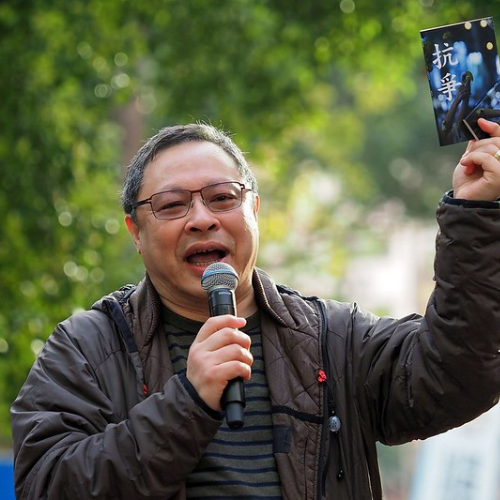Benny Tai will go down as a legal legend in Hong Kong history, but he will also be remembered as a representation of the city’s unwavering quest for democracy. After being praised for his civic education work and acknowledged for his constitutional law knowledge, Tai is currently involved in the debate over the biggest national security matter involving Hong Kong. The trajectory of his career from distinguished academic to accused “state subverter” reflects the complex dance between authority and autonomy that characterizes the city’s democratic fight under Beijing’s auspices.
Background: A Scholar’s Beginnings
The year 1964 marked the start of Benny Tai’s adventure, with the city undergoing significant change. Tai thoroughly studied the complexities of constitutional law while he was a student at the University of Hong Kong, especially the nuances of Beijing’s “One Country, Two Systems” concept. Conceived as the fundamental basis of Hong Kong’s independence, this structure ensured that the city’s capitalist structure, common law heritage, and civil rights would be maintained once Hong Kong followed its handover to China.
From Academia to Activism: Benny Tai’s Transition
Benny Tai’s scholarly interests extended beyond lecture halls and into the fields of activism and advocacy. Tai’s devotion to influencing the legal system in the city was demonstrated by his work on the Basic Law alongside Martin Lee, a pivotal figure in the development of the Democratic Party of Hong Kong. As Tai rose through the academic ranks, his dedication to civic education brought him praise and official recognition from the government, establishing him as a reliable consultant on constitutionally significant issues.
The Rise of Pro-Democracy Movements
However, Benny Tai’s impact would ultimately be defined by his entry into the grassroots movement. Tai rose to prominence in the Occupy Central movement in 2014 amid mounting resentment over Beijing’s alleged intrusion on Hong Kong’s sovereignty. People from all areas of life in Hong Kong united in their demand for democratic reforms and universal suffrage during the 79-day sit-in, which saw the city’s streets turned into makeshift camps of dissent.
The Crackdown and Accusations of Subversion
Yet, the response of the government also grew in strength as the movement did. Beijing became enraged with Benny Tai’s unwavering support of democratic principles, which led to his conviction in 2019 on inciting and public nuisance charges. But it was the ensuing charges of subversion brought against Tai and others that rocked the democracy movement in Hong Kong. Tai was portrayed by the prosecution as the “mastermind” of a massive plot to overthrow the political order, using his knowledge to plan acts of disobedience against the state.
A Symbol of Resistance
In the pro-democracy environment of Hong Kong, Benny Tai continues to be a prominent figure, despite the growing legal hurdles and personal threats. His determination and the taking away of his awards only made his voice stronger and turned him into a symbol of defiance and tenacity for a community at a crossroads. Hong Kongers who long for political freedom find encouragement in Tai’s persistent dedication to democratic ideals as Beijing’s hold grows stronger and opposition is greeted with violent retaliation.
The future of the democracy movement in Hong Kong is in jeopardy as Benny Tai awaits punishment for his suspected role in subversion under the city’s national security statute. His transition from academic to activist serves as an example of the challenges and intricacy involved in negotiating Hong Kong’s political environment while it is ruled by China. However, Tai’s steadfast adherence to democratic ideals serves as a reminder that the fight for freedom is significantly ongoing despite the unpredictability. Hong Kongers, resolved to write the next chapter in their fight for democracy, continue to look to Tai and those like him for inspiration in the face of adversity.


